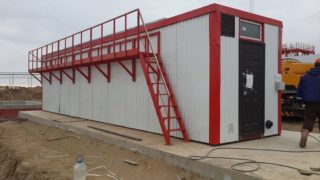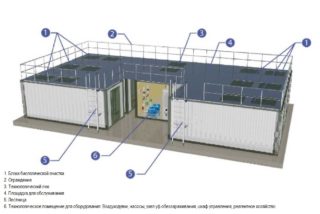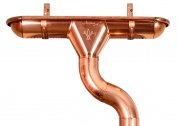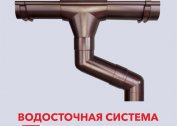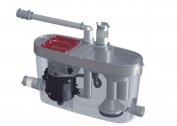Modular treatment facilities solve the problem of wastewater treatment at large facilities. The system design is located in the mobile module. The use of plants is environmentally friendly and efficient; they are used for different types of drain fluids.
Purpose of modular treatment facilities
Modular sewage treatment plants are used to clarify domestic, storm and industrial wastewater.
The equipment is used to clean sewage of separately located objects that are not connected to a centralized sewage system. Objects of this type include:
- cottage towns, gardening, small villages;
- factories, plants and combines;
- establishments of hotel and health type, catering;
- Airports
- administrative, medical and educational institutions;
- shift settlements;
- military bases.
The devices are used in facilities where it is necessary to conduct water treatment with a capacity of more than 20 cubic meters per day. The equipment is suitable for working in environmental zones where it is impossible to equip treatment plants underground.
The main advantage of modular systems is that there is no need for a separate room. You can save usable space.
The principle of operation and device
By design, compact water treatment plants consist of several modules, the layout of which depends on the composition of the wastewater, the requirements for the degree of purification, and the characteristics of the facility.
Inside may be:
- separators for mechanical cleaning;
- equipment for chemical and biological treatment;
- ultraviolet disinfection devices;
- post-treatment filter elements;
- denitrification and dephosphation blocks;
- biological reactors, septic equipment;
- devices for dispensing reagents;
- reservoirs for clarified liquid;
- pump and compressor units;
- security and alarm systems.
A multi-stage process allows you to effectively carry out both mechanical cleaning and the retention of harmful impurities and chemical elements from sewage. Bio-purification technology is applied, where the conditions of the anaerobic environment are maintained by means of automated control systems. The fermentation mode provides the full mineralization of organic substances with the least expenditure of electrical energy.
Technical specifications and cost
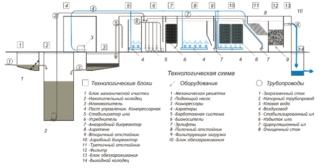 Structural indicators of structures indicate their advantage over stationary installations:
Structural indicators of structures indicate their advantage over stationary installations:
- the area of modules occupies 12-30 percent of traditional devices;
- productivity - from 20 to 50,000 cubic meters per day;
- the need for a sanitary zone - up to 150 m;
- temperature conditions from 60 degrees of heat to 55 - frost;
- the possibility of stable operation in any climatic conditions.
Stations are characterized by low power consumption. Add modules and increase productivity.
The cost of modular treatment facilities of autonomous sewage is from 70,000 rubles. The price depends on the size, performance and filtering devices located inside.
Mounting Features
Installing cleaning modules is easier than building stationary stations. By reducing construction costs by up to 40 percent, the overall cost of the refining complex is also reduced. Modules are delivered ready for assembly.
When designing treatment plants, they take into account all circumstances that may subsequently affect the functioning of structures. This also applies to environmental laws. To comply with the conditions of the sanitary protection zone, it is worth considering such data:
- calculation of the size and volume of each of the modules;
- selection of installation location;
- soil and climate features;
- performance indicators;
- the choice of purification method.
Installation of modules will require the development of design and estimate documentation, obtaining permits from authorities in charge of the discharge of sewage and compliance with land laws.
Following sanitary, environmental and technological standards guarantees high-quality installation work and eliminates problems with regulatory organizations.
The choice of modular treatment plants is preferable in terms of environmental impact and cost-effectiveness of maintenance. Due to the high level of purification, it becomes possible to reuse clarified up to 95 percent of effluents for technical and household needs. Due to the simplicity of the process, there is no need to use additional equipment and hire highly qualified employees.
